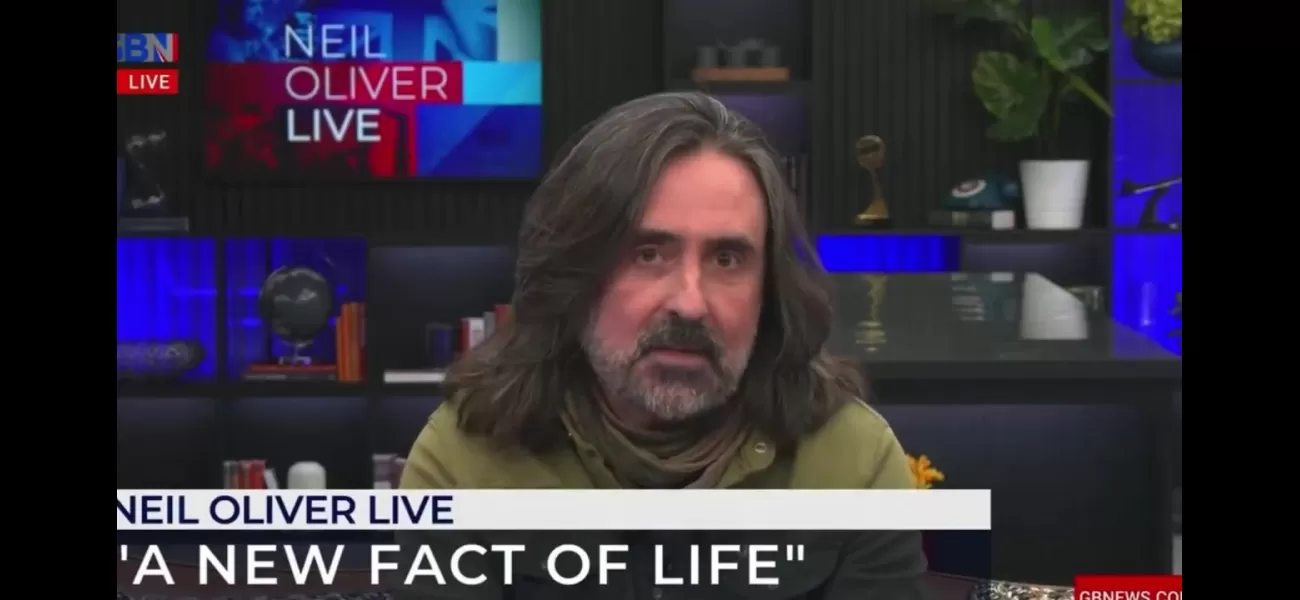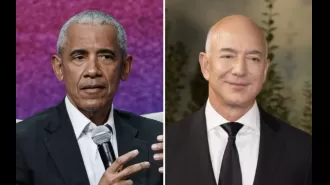TV host criticized for promoting dangerous 'turbo cancer' conspiracy.
'Hey Ofcom, do what you're supposed to do.'
January 15th 2024.

A presenter on GB News, Neil Oliver, has been facing criticism for promoting the idea of a supposed 'turbo cancer'. Oliver, who was previously known for hosting documentaries on history and archaeology, has now become known for spreading conspiracy theories.
During a recent episode of his show, Oliver claimed that 'turbo cancer' was a real condition and that the pharmaceutical company Pfizer was buying out companies that were working on treatments for it. This statement was met with widespread criticism, as experts have confirmed that there is no such thing as 'turbo cancer'.
Oliver's comments were made in the context of Pfizer's acquisition of Seagen, a biotechnology company specializing in cancer treatments. He suggested that this was evidence of Pfizer's involvement in the so-called 'turbo cancer' and went on to quote the company's CEO, Albert Bourla, who had predicted that a third of the world would be affected by this disease in the future.
However, these claims were quickly debunked by medical experts and journalists, who pointed out that there is no scientific evidence to support the existence of 'turbo cancer'. This is not the first time Oliver has faced backlash for spreading misinformation, as he has also faced criticism for his views on the COVID-19 vaccine.
In 2021, he received backlash for stating that he would 'cheerfully risk catching COVID' in the name of personal freedom. He also faced criticism for suggesting that those who choose not to get vaccinated are living under 'tyranny'. Despite these controversies, GB News has continued to give Oliver a platform, leading to further outrage from viewers and media watchdogs.
In response to these criticisms, Oliver's supporters have sarcastically joked about his medical credentials and made comments about his lack of expertise in this area. However, the seriousness of spreading false information and conspiracy theories cannot be ignored, as it can have real and harmful consequences.
In fact, GB News has been found to breach impartiality laws multiple times and has faced criticism for its lenient punishments. Despite calls for stricter action from media watchdog Ofcom, the channel has only been asked to 'take careful account' of its decisions in the future. This has led to further scrutiny and calls for accountability from both viewers and the media industry.
The Agency has reached out to GB News and Ofcom for comment, but has not received a response at this time. As the controversy surrounding GB News and its presenters continues, it is important to remember the responsibility that comes with having a platform and the potential impact of spreading false information.
During a recent episode of his show, Oliver claimed that 'turbo cancer' was a real condition and that the pharmaceutical company Pfizer was buying out companies that were working on treatments for it. This statement was met with widespread criticism, as experts have confirmed that there is no such thing as 'turbo cancer'.
Oliver's comments were made in the context of Pfizer's acquisition of Seagen, a biotechnology company specializing in cancer treatments. He suggested that this was evidence of Pfizer's involvement in the so-called 'turbo cancer' and went on to quote the company's CEO, Albert Bourla, who had predicted that a third of the world would be affected by this disease in the future.
However, these claims were quickly debunked by medical experts and journalists, who pointed out that there is no scientific evidence to support the existence of 'turbo cancer'. This is not the first time Oliver has faced backlash for spreading misinformation, as he has also faced criticism for his views on the COVID-19 vaccine.
In 2021, he received backlash for stating that he would 'cheerfully risk catching COVID' in the name of personal freedom. He also faced criticism for suggesting that those who choose not to get vaccinated are living under 'tyranny'. Despite these controversies, GB News has continued to give Oliver a platform, leading to further outrage from viewers and media watchdogs.
In response to these criticisms, Oliver's supporters have sarcastically joked about his medical credentials and made comments about his lack of expertise in this area. However, the seriousness of spreading false information and conspiracy theories cannot be ignored, as it can have real and harmful consequences.
In fact, GB News has been found to breach impartiality laws multiple times and has faced criticism for its lenient punishments. Despite calls for stricter action from media watchdog Ofcom, the channel has only been asked to 'take careful account' of its decisions in the future. This has led to further scrutiny and calls for accountability from both viewers and the media industry.
The Agency has reached out to GB News and Ofcom for comment, but has not received a response at this time. As the controversy surrounding GB News and its presenters continues, it is important to remember the responsibility that comes with having a platform and the potential impact of spreading false information.
[This article has been trending online recently and has been generated with AI. Your feed is customized.]
[Generative AI is experimental.]
0
0
Submit Comment





